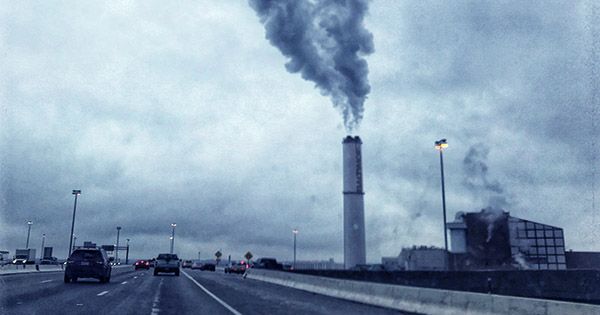Air pollution is getting worse for more than half of the world’s population, according to new research from the University of Exeter in the UK. Most of the world’s population continues to be exposed to levels of air pollution above the guidelines set by the World Health Organization. Although some countries have recently reduced air pollution levels in response to active policy changes, the global picture was largely forgotten by the growing levels of fine particulate matter in the air in many lower-middle-income countries, especially in Central and Southeast Asia.
Professor Gavin Shaddick, study author and chair of Data Science & Statistics at the University of Exeter, said in a statement, “While long-term policies to reduce air pollution have been shown to be effective in many areas, particularly in Europe and the United States, there are still areas with dangerously high levels of air pollution, five times higher than in the rest of the world.”
The new study used ground monitoring data, including information on aerosol optical depth, chemical transport models, and satellite retrieval from other sources. Their research highlights the levels of fine particulate matter in the surrounding outdoor air to measure annual air quality profiles for individual countries and between 2010 and 2010 worldwide, Reported in the journal Climate and Atmospheric Science.
Fine particle material is produced by household energy use, industrial, agricultural, and transport sectors, and coal-fired power plants. In some parts of the world, sand and desert dust, waste incineration, and forestry also contribute. The health effects of inhaling too much particulate matter can range from cardiovascular disease to serious mental health problems. According to the latest estimates, air pollution is responsible for nearly 9 million premature deaths worldwide. Meanwhile, a separate report found that a large number of people living in five countries around the world support stricter air quality regulations.
The Clean Air Fund survey asked a large number of people living in Great Britain, India, Nigeria, Poland, and Bulgaria about their views on air pollution and air quality regulations. They found that at least two-thirds of the people surveyed supported stricter controls in tackling air pollution, while more than 90 percent of those surveyed in India and Nigeria said they wanted to improve air quality. In light of their findings, the Clean Air Fund argues that new environmental measures should be an integral part of economic recovery packages that many governments seek to achieve by following the ongoing Covid-19 epidemic.
Jane Burston, executive director of the Clean Air Fund, said in a statement, “Governments around the world have a clear public demand for clean air – and no excuses will be made. As lockdowns have become easier and economies have started again, people are clear that they do not want to return to the toxic air. It will only replace one health crisis with another.”















